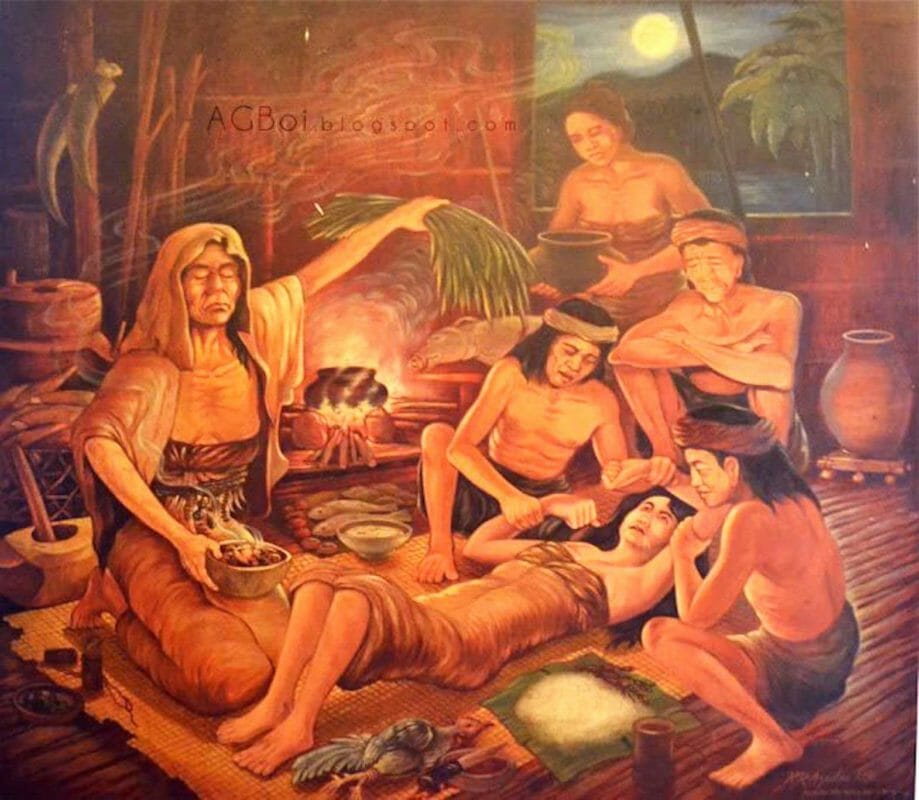
BABAYLAN by R. Aguilar at the Negros Museum
NEW YORK—I have been following with great interest the rise of an antifeminist movement in South Korea—a worrying backlash against the gains made by women in a society that traditionally has been hugely patriarchal. The country’s rise from the ashes of the Korean War to prosperity—it is the world’s 12th largest economy—has been nothing short of remarkable.
But that progress has not been replicated when it comes to women’s rights.
Confucian hierarchy is still deeply embedded in Korean society. This is evident in for instance the fact that the country has the highest gender wage gap among members of the Organization for Economic Cooperation and Development (OECD), a consortium of developed countries. The household, and the work needed to maintain it, is regarded as the domain of women, so that they do 2.6 times as much unpaid domestic work as men. Another revealing statistic: females make up only 5.2 percent of Korean corporate boards.
Emblematic of this right-wing movement has been the bullying of Tokyo Olympic gold medalist in archery, An San, for having, of all things, short hair. There have been demands not only that she return her medals but that she should apologize. And the antifeminists have campaigned to abolish the government’s gender ministry, with two conservative presidential candidates pledging to do so should either one win, one candidate declaring that the ministry is obsolete and needs to be disbanded in order to reduce the “enormous social cost caused by conflict over gender issues”.
The ministry is a key player in the feminist movement, succeeding in the abolition of the discriminatory hojusystem, under which children are registered exclusively under the patriarchal line. And it has set up an agency to help single mothers collect child support and created programs for working mothers and immigrant wives. The current ministry head Chung Young-ai has argued for its continued existence, since “[T]he improvement of women’s rights so far has been possible because our ministry existed.”
The backwards-looking movement has wielded its collective economic heft to force companies to apologize for featuring images of fingers that seem to be pinching—images that apparently are perceived as mocking men with small penises. I suppose those fingers did touch a nerve.
This is one instance where, in spite of the Philippines moribund economy, seemingly perennial poor-world status, and corrupt political system, its citizenry can proudly assert that gender equality has never been much of an issue. Not that everything is all that it should be, but that the precolonial matriarchal system has endured the corrosiveness of Spanish and Yankee colonialism (inherently patriarchal), and its attendant faith, equally patriarchal Christianity.
According to the Philippine Commission on Women, based on the World Economic Forum’s Global Gender Gap Report, the country is tops in Asia when it comes to gender parity, and the only one among the top 20 globally. The second highest ranked Asian country is Laos, which comes in at 43rd. Iceland is numero uno.
In terms of industry and economic roles, women outnumber men in senior and leadership roles. Politically, however, the percentage of female Cabinet members declined from 25% to 10%, beginning in 2017 to 2019. No surprise: Those years make up the first half of President Duterte’s six-year term. The man is notorious for his blustery, anti-feminist tirades and sexist jokes. He probably would feel insulted by the fingers-pinching image.
While having a woman as president of the United States is much debated, the Philippines has had two female presidents and two vice-presidents. And it is hoped fervently that the country will have its third female president should the current vice president Leni Robredo win in May’s presidential election.
Should Robredo ascend to the nation’s highest office, she would yet be another part of the archipelago’s ancient tradition of female power, from the babaylan, or female shamans and spiritual guides, and the acceptance of female sexual mores as equally important as those of the male, to the leading role women have played in revolutionary movements and their unveiled, unstinting, outspoken crucial activism in modern society.
Duterte and his ilk may represent a seemingly durable though dubious tradition, but in the larger context they are outliers, unimaginative, thin-skinned, repellent, and utterly forgettable. Pinch your fingers if you agree!
Copyright L.H. Francia 2022

